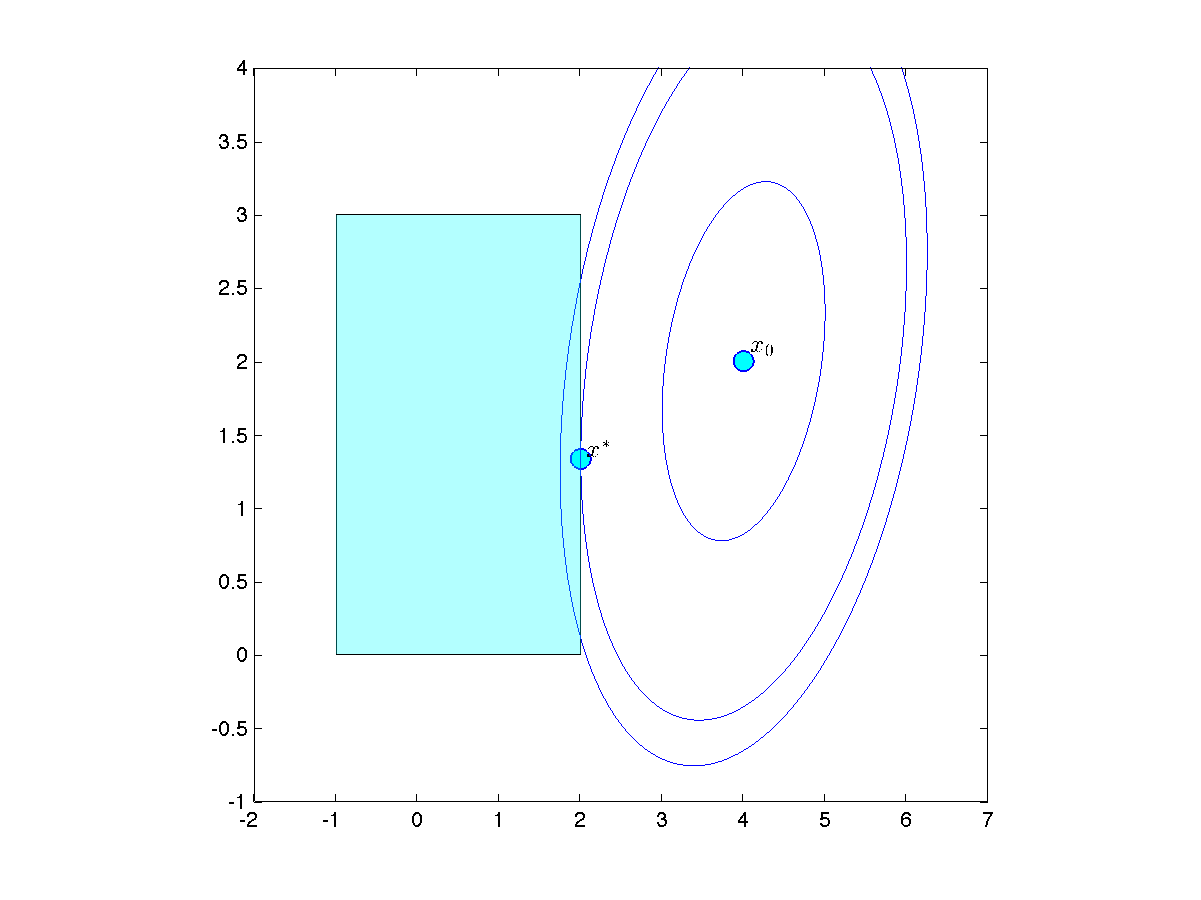A Quadratic Program with Two Variables
Consider the problem

The problem is a quadratic program:
the constraints are affine inequalities in the decision vector
 ;
;the objective function can be expressed as

where

We check that  is positive semi-definite by computing its eigenvalue decomposition:
is positive semi-definite by computing its eigenvalue decomposition:

and checking that the eigenvalues (appearing on the diagonal of  ) are non-negative.
) are non-negative.
 |
Geometric view of the quadratic program above. The problem is a QP since the objective function is quadratic convex, and the constraints are affine inequalities. |